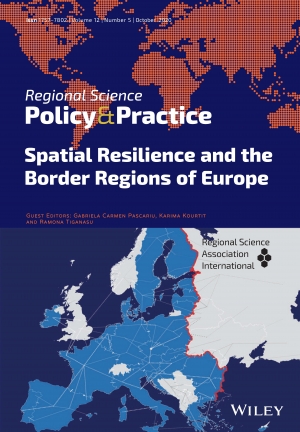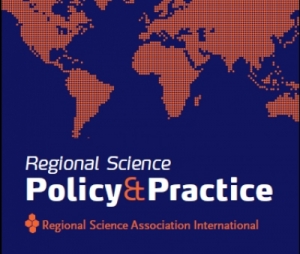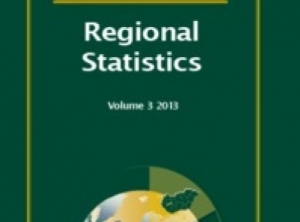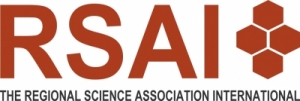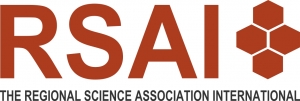RSPP Special Issue Award
Elisabete Martins
Two Postdoctoral positions in Economics and Finance at NIPE/University of Minho, Portugal
The Centre for Research in Economics and Management (NIPE) of the University of Minho, Portugal, is looking for outstanding post-doctoral researchers in Economics and Finance.
We are offering two positions, for Junior and Assistant Researchers. Applicants to the Junior Researcher position are required to hold a Ph.D. in Finance or Economics, no older than 5 years. The contract is for a maximum of three years. Applicants to the Assistant Researcher position are required to hold a Ph.D. in Economics, no older than 10 years. The contract is for 4 years and can be extended annually for two additional years. Both positions offer internationally competitive salaries including social benefits. Please follow the links for detailed information about the tenders.
Applicants interested in the positions should submit their application to This email address is being protected from spambots. You need JavaScript enabled to view it.. The deadline is October 28th, 2020.
The latest issue of Regional Science Policy & Practice are available! Volume 12, Issue 5, Special Issue: Spatial Resilience and the Border Regions of Europe, Pages: 747-976, October 2020
Special Issue: Spatial Resilience and the Border Regions of Europe
Issue Edited by: Gabriela Carmen Pascariu, Karima Kourtit and Ramona Tiganasu
ISSUE INFORMATION
INTRODUCTION
Regional development, spatial resilience and geographical borders
Gabriela Carmen Pascariu, Karima Kourtit, Ramona Tiganasu
Pages: 749-754
ORIGINAL ARTICLES
Living together at the cross‐border regional scale in Europe: Supra‐national and trans‐national identity models in the Greater Region
Pages: 755-766
Borderlands from the resilience perspective: Diversification of state borders in former Austrian Galicia
Pages: 793-813
Mariann Szabó, Zsuzsanna Banász
Pages: 815-831
Security policy and regional development: The impact of local border traffic on the economy of the Polish‐Russian border area
Pages: 833-845
EU‐Russia cross‐border co‐operation in the twenty‐first century: Turning marginality into competitive advantage
Pages: 847-865
Friday, October 16 - REAL/PUCRS Fall Seminar

REAL focuses on the development and application of systemic economic models at the urban and regional levels. Since 2015, REAL has hosted more than 110 graduate students and visiting scholars from China, Brazil, Colombia, USA, Chile, and Spain among other countries.
|
|
Friday, October 09 - REAL/PUCRS Fall Seminar

REAL focuses on the development and application of systemic economic models at the urban and regional levels. Since 2015, REAL has hosted more than 110 graduate students and visiting scholars from China, Brazil, Colombia, USA, Chile, and Spain among other countries.
Sofía Jiménez. Professor, University of Zaragoza, Spain.
| This email address is being protected from spambots. You need JavaScript enabled to view it. |

Natália Branco Stein. PhD Student, Graduate Program in Development Economics, Pontifical Catholic University of Rio Grande do Sul, Brazil.
| This email address is being protected from spambots. You need JavaScript enabled to view it. |

October
09
09:00 -10:00 am
Central Time (US)
Join Zoom Meeting by clicking here
Meeting ID: 997 1523 2314
Passcode: 923169
Sofía Jimézes
Professor, University of Zaragoza, Spain
"Challenging climate change: economic effects of regions interaction from an “atmosfear” perspective"
In recent years, the effects of climate change have become a topic of growing interest in the literature. Despite that, a more focused study on its spatial economic and structural characteristics is necessary, to shed light on the responsibilities of the different countries about the climate change. This paper analyses the spatial economic causes for the global areas in the world during a period of 15 years. Based on an environmentally extended interregional input-output model, we estimate the carbon dioxide emissions embodied in international trade. In the second part, and taking into account the previous analysis, we measure the spatial effects of the different countries among them, carrying out a spatial econometric analysis to find the most suitable spatial model for our analysis. Besides, as a contrast with traditional contiguity and distances weigh matrices, in this paper we create a weight matrix based on the atmospheric movements of wind. The results offer a different and new approach on this field, highlighting the importance of the spillovers of the closest neighbors to explain the CO 2 emissions of the local country.
Natália Branco Stein
PhD Student, Pontifical Catholic University of Rio Grande do Sul, Brazil.
"The valuation of creativity and the index of Brazilian creative cities: what is their relationship with economic development?"
This thesis project focuses on themes related to economic and creativity debate and proposes addresses the relationship between creativity and the universe of urban and regional economy from three essays. The first one presents as the main objective understanding the origin of creativity valorization, bringing the concepts that are linked with it, identifying how creativity interacts with urban and regional economy. The second essay presents the concept of creative cities, identifying the main initiatives to develop creative cities in the world, to thereby build a Brazilian creative city index. Finally, the last essay, intends to analyse the relation between the presence of talent, tolerance and technology in the creative cities and the level of economic development.
RSPP Call for Papers | Special Issue on Design, Implementation and Evaluation of Territorial Inequalities Policies
Special Issue Theme:
“Design, Implementation and Evaluation of Territorial Inequalities Policies”
RSPP-EUREAL initiative coordinated by Ana Vinuela This email address is being protected from spambots. You need JavaScript enabled to view it.
The objective of the RSPP Special Issue is to publish scientific work on the design, implementation and evaluation on integrative policy mechanisms to enable supranational, national and regional government agencies to address territorial inequalities and to imagine future spaces in which the allocation of resources is consistent with principles of social and spatial justice.
Topics are:
- The measurement and understanding of spatial (in)justice and territorial inequalities at national, regional or local level.
- The impact of the economic crisis, the austerity policies or the Covid-19 on territorial inequalities, especially in relation to the different models of territorial governance, sustainable economic development and public service delivery.
- Perceptions of spatial (in)justice vs quantifiable territorial inequalities
- Framing and justification of territorial autonomy movements and their levels of support in relation to the real or perceived spatial (in)justice.
- Efficacy and appropriateness of current territorial policies and instruments for addressing the challenges of territorial inequalities and spatial justice.
The RSPP Special Issue will combine qualitative and quantitative research papers and methods at multiple scales of enquiry.
Important Dates:
|
Webinar with draft papers |
January 29, 2021 |
|
Papers Submission |
March 19, 2021 |
|
Expected Publication |
Autumn, 2021 |
|
Expected Compilation |
December, 2021 |
The New Issue of Regional Statistics is already Available! (2020, VOL 10, No 2.)
We are pleased to inform you that a new issue of the Regional Statistics has been released and now it’s avaiable online.
http://www.ksh.hu/docs/hun/xftp/terstat/2020/eterstat2002.pdf
REGIONAL STATISTICS, 2020, VOL 10, No 2.
STUDIES
Natalia Zdanowska – Céline Rozenblat – Denise Pumain: Evolution of urban hierarchies under globalisation in Western and Eastern Europe
http://www.ksh.hu/docs/hun/xftp/terstat/2020/rs100202.pdf
Luca Salvati: Density-dependent population growth in Southern Europe (1961–2011): A non-parametric approach using smoothing splines
http://www.ksh.hu/docs/hun/xftp/terstat/2020/rs100201.pdf
Zoltán Bánhidi– Imre Dobos – András Nemeslaki: What the overall Digital Economy and Society Index reveals: A statistical analysis of the DESI EU28 dimensions
http://www.ksh.hu/docs/hun/xftp/terstat/2020/rs100209.pdf
Ngo Thai Hung: Volatility spillovers and time-frequency correlations between Chinese and African stock markets
http://www.ksh.hu/docs/hun/xftp/terstat/2020/rs100203.pdf
Fernando Antonio Ignacio González: Regional price dynamics in Argentina (2016–2019)
http://www.ksh.hu/docs/hun/xftp/terstat/2020/rs100205.pdf
Haryo Kuncoro: Regional inflation dynamics and its persistence – The case of selected regions in Indonesia
http://www.ksh.hu/docs/hun/xftp/terstat/2020/rs100211.pdf
Dimitrios Tsiotas– Umut Erdem – K. Mert Cubukcu: Outlining the historical framework of the aviation sector in Turkey: A spatiotemporal approach
http://www.ksh.hu/docs/hun/xftp/terstat/2020/rs100204.pdf
Csilla Nezdei: The prospects of regional market place developments in economic geographical perspective Case study of Balaton Resort Area, Hungary
http://www.ksh.hu/docs/hun/xftp/terstat/2020/rs100206.pdf
Mihály Lados–Éva Szabina Somossy–Tamás Tóth: Regional Statistics, Vol. 10. No. 2. 2020: 166–185; DOI: 10.15196/RS100207 Financial subsidies and the location decision of solar power plants in Hungary: An empirical investigation
http://www.ksh.hu/docs/hun/xftp/terstat/2020/rs100207.pdf
Zsombor Szabó– Tibor Sipos: Separation effects in a microregion: traffic volume estimation between the settlements of Lake Velence
http://www.ksh.hu/docs/hun/xftp/terstat/2020/rs100208.pdf
Balázs Benjámin Budai – István Tózsa: Regional inequalities in front-office services Focus shift in e-government front offices and their regional projections in Hungary
http://www.ksh.hu/docs/hun/xftp/terstat/2020/rs100212.pdf
VISUALIZATIONS
Áron Kincses–Géza Tóth: How coronavirus spread in Europe over time: national probabilities based on migration networks
http://www.ksh.hu/docs/hun/xftp/terstat/2020/rs100210.pdf
Join us to our social networking sites:
APDR Congress 2020 | All main sessions are available online on APDR Youtube chanal
All main sessions from APDR congress were live online and recorded and are now available at the APDR Youtube chanal (https://www.youtube.com/channel/UCsWNSFYf8oLb4Bc07csWmNQ/videos?view_as=subscriber) or congress page (http://www.apdr.pt/congresso/2020/program.html).
The latest issue of Papers in Regional Science is available! Volume 99, 5 (October 2020)
|
Papers in Regional Science Pages: 1163-1511 October 2020 |
ISSUE INFORMATION
![]() Free Access
Free Access
Pages: 1163-1164 | First Published: 17 September 2020
FULL ARTICLES
![]() Open Access
Open Access
Kolja Hesse, Dirk Fornahl
Pages: 1165-1183 | First Published: 10 March 2020
Waad K. Ali, K. Bruce Newbold
Pages: 1185-1213 | First Published: 18 March 2020
![]() Open Access
Open Access
Robert Tijssen, Wouter van de Klippe, Alfredo Yegros
Pages: 1215-1236 | First Published: 21 March 2020
![]() Open Access
Open Access
Firm‐specific cluster effects: A meta‐analysis
Nils Grashof
Pages: 1237-1260 | First Published: 09 March 2020
The effects of highways on school segregation
Philip Heidt, M. Taha Kasim
Pages: 1261-1280 | First Published: 16 April 2020
Paul A. Lewin, Bruce A. Weber
Pages: 1281-1300 | First Published: 10 March 2020
Land use regulations and the dispersion of the IT Industry in the San Francisco Bay area
Taner Osman
Pages: 1301-1316 | First Published: 04 April 2020
An analysis of pedestrian crashes using a spatial count data model
Rebekka E. Apardian, Oleg Smirnov
Pages: 1317-1338 | First Published: 29 February 2020
Ida Lovén, Cecilia Hammarlund, Martin Nordin
Pages: 1339-1365 | First Published: 21 March 2020
![]() Open Access
Open Access
Attila Varga, Norbert Szabó, Tamás Sebestyén
Pages: 1367-1388 | First Published: 19 March 2020
Sandra M. Sánchez‐Cañizares, L. Javier Cabeza‐Ramírez, M. Dolores Guerrero‐Baena
Pages: 1389-1411 | First Published: 04 April 2020
![]() Open Access
Open Access
Optimizing entrepreneurial development processes for smart specialization in the European Union
László Szerb, Raquel Ortega‐Argilés, Zoltan J. Acs, Éva Komlósi
Pages: 1413-1457 | First Published: 16 April 2020
Firm financial soundness and knowledge externalities: A comparative regional analysis
Lara Abdel Fattah, Giuseppe Arcuri, Aziza Garsaa, Nadine Levratto
Pages: 1459-1486 | First Published: 25 April 2020
Luis Diaz‐Serrano, William Nilsson
Pages: 1487-1508 | First Published: 18 May 2020
BOOK REVIEW
Amitrajeet A. Batabyal
Pages: 1509-1511 | First Published: 15 June 2020
Election of RSAI new Councillors at large
Dear RSAI members,
By RSAI Constitution, nominations for Councilors-at-large “shall be made by the Council after solicitation of suggestions from the members of the Association”. At the end of 2020, the positions on the RSAI Council held by Prof. Amit Batabyal (Rochester Institute of Technology), Prof. Sumana Bandyopadhyay (Kolkata University), and Prof. Rosella Nicolini (Universitat Autònoma de Barcelona) will expire; we therefore inform that the proposals for three councilors-at-large can be sent to the address This email address is being protected from spambots. You need JavaScript enabled to view it. within October 10, 2020. Candidatures will have to include a professional CV and a photo.
The election of three councilors-at-large for the period 2021-2023 will take place electronically by RSAI members during the second half of October 2020.
Best regards,
Andrea Caragliu
RSAI Executive Director
Call for RSAI Programs 2021 (DEADLINE October 10, 2020)
Nurturing new talent 2021
The RSAI aims to continue promoting the development of Regional Science by nurturing new talent in 2021. The council has therefore pledged resources to co-finance workshops and summer institutes intended to provide substantive training to pre-doctoral researchers, including the presentation of their work and receiving feedback from senior scholars and their peers. It is expected that the selected workshops and institutes will have considerable international geographical coverage.
Organizers of workshops and summer schools fulfilling the above aims are encouraged to submit a two-page case for support, using the included template, within October 10, 2020 to the RSAI secretariat (This email address is being protected from spambots. You need JavaScript enabled to view it.). Individuals are encouraged to consult with their national and supranational sections to allow better coordination among different initiatives.
All applications will be reviewed by the Committee and will have to be formally approved by the RSAI Council. Their decision will be final.
Building bridges in regional science
2021 conference participation support
The RSAI facilitates the participation of researchers from low-income and lower-middle-income economies (as defined by the World Bank: https://data.worldbank.org/about/country-and-lending-groups#Low_income) at the five largest Regional Science Conferences in 2021: LARSA, PRSCO, ERSA, NARSC, and the World Congress.
RSAI will provide a subsidy up to USD 500 (or the equivalent in other currencies) to selected researchers. This is likely to cover the conference registration fee and some local travel costs. Alternative means of financing will have to be sought for international travel and accommodation.
Only one author of a submitted paper presentation proposal can apply for a subsidy.
Interested researchers should upload a two-page CV plus a one-page motivation –including a budget with proposed sources of funding of the conference-related registration, travel and accommodation costs – within 30 days of receiving confirmation of the acceptance of the researcher’s abstract by the conference organizers.
Applicants should have had a paper accepted for presentation at the conference.
All applications, to be submitted at the following link:
https://www.emailmeform.com/builder/form/4Qb1O9ro1K0LuWIeG
will be reviewed by the Committee and will have to be formally approved by the RSAI Council. Their decision will be final.
About Us
The Regional Science Association International (RSAI), founded in 1954, is an international community of scholars interested in the regional impacts of national or global processes of economic and social change.

